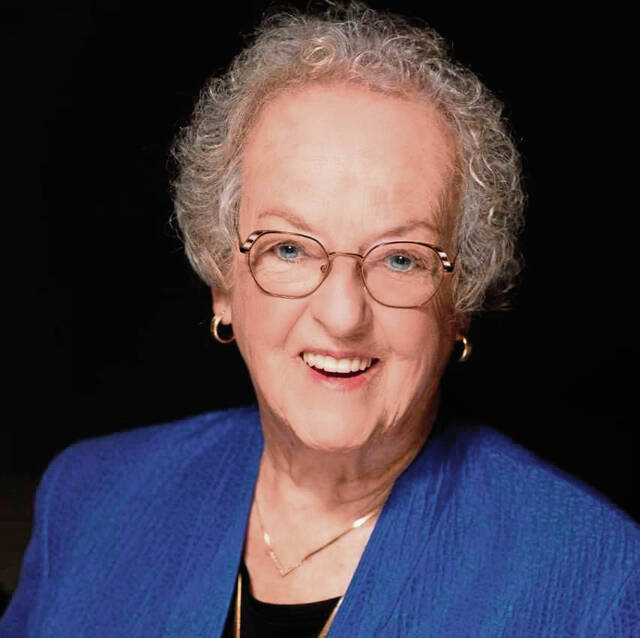Murrysville Alzheimer's educator publishes children's book about dementia
During her time as director of a memory-care facility in Rhode Island, former teacher Doreen Putnam began to notice the children who were coming to visit residents whose cognition had been affected by diseases such as Alzheimer’s.
“They really didn’t understand what was happening to their grandma or grandpa,” Putnam said.
Now living in Murrysville and serving as a community educator for the Pittsburgh and Delaware Valley chapters of the Alzheimer’s Association, Putnam used her experience in Rhode Island as inspiration to embark on a 14-year journey to publish a children’s book, “Sometimes Grandmama Doesn’t Know Me!”
“The examples and illustrations in the book come from real-life situations within families,” she said. “Grandmama’s changing behaviors and language are true to an Alzheimer’s patient in the early to middle stages of the disease process.”
Putnam said her goal is to provide free copies of the book to people who deal directly with families struggling with Alzheimer’s or other forms of dementia through her “Kids Stepping Up Project.”
Putnam spoke recently about the journey to writing her book, which is available at Amazon and Barnes & Noble and through her website, DCPutnam Consulting.com. This interview has been edited for length.
Question: Is it difficult to see the type of situation depicted in the book?
Answer: It’s difficult to listen to the stories, concerns and fears of primary caregivers. Their situations are tragic; their journeys are devastating. Their lives and the lives of their loved ones have been turned upside down and inside out. And the saddest part of their journey is that there is nothing they can do to stop the progression of the disease, reverse it or prevent it. They feel helpless, are riddled with guilt and, at times, are embarrassed by their loved one’s behavior or language.
Q: And younger children are not always privy to what is happening, right?
A: Many times, but not always, children and teenagers get lost in the confusion of daily life when a loved one has some form of dementia. Children are not necessarily included in family conversations or asked their opinions or feelings about what might be happening. Children see the confusion and concern on their parents’ faces, hear it in their voices and they feel the stress within the family. If their loved one is a grandparent with Alzheimer’s disease, they are 65 or older. However, if the diagnosis is frontotemporal dementia (the most common form), a parent could be in their 40s or 50s. That’s a different and very difficult situation for a child of any age to be part of within the family structures. Alzheimer’s disease and the other dementias are terminal diseases. That reality is devastating to family members, no matter their age.
Q: What are some ways to help children understand a situation like that?
A: Every situation is different, and the range of children’s ages will vary, so that has to be taken into consideration. However, there are several points that I would make to children:
• Know that your loved one is still the same person you have known and loved your entire life.
• What you are seeing and hearing are things that your loved one has no control over. Their brain is sick (and dying … depending on the age) and is not able to do what it used to do.
• Your loved one still loves you but may not be able to tell you that in words anymore.
• Continue to show your love every way you always have. Hug them, kiss them, hold their hand when you go for a walk, include them in every way possible, read to them if they can’t read to you any longer, bake cookies with them, watch their favorite movie with them. Do what you can to make them feel happy, respected and loved.
Patrick Varine is a TribLive reporter covering Delmont, Export and Murrysville. He is a Western Pennsylvania native and joined the Trib in 2010 after working as a reporter and editor with the former Dover Post Co. in Delaware. He can be reached at pvarine@triblive.com.
Remove the ads from your TribLIVE reading experience but still support the journalists who create the content with TribLIVE Ad-Free.


